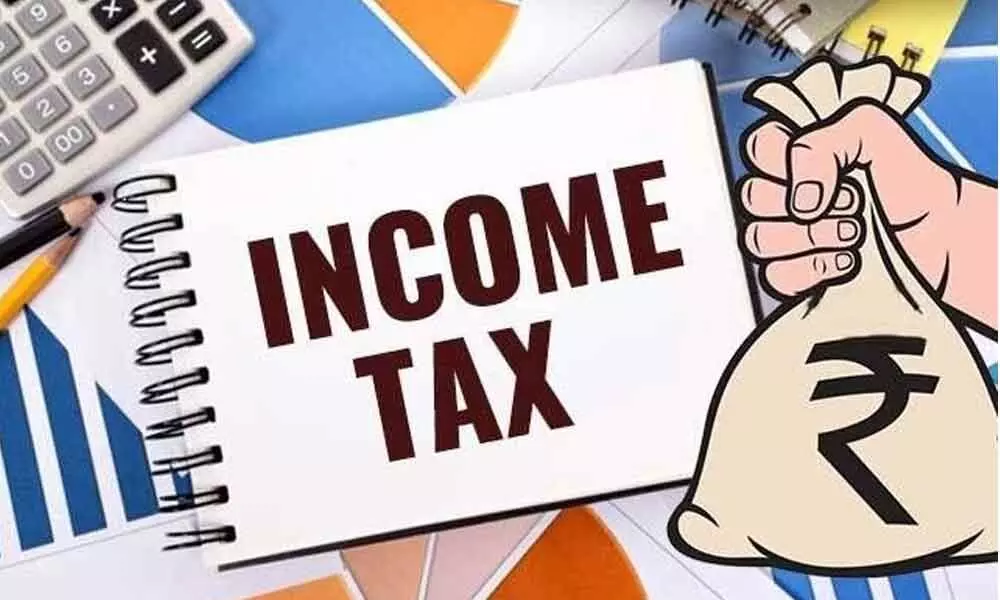Changed job? Form-16 missing? Here's how you can still file I-T return
You can still file your Income-Tax Return (ITR) on your own or seek help from a tax professional or a Chartered Accountant.
image for illustrative purpose

I worked with two companies during the last financial year. I got Form-16 for eight months from one employer and did not receive form 16 from another employer. How do I go about filing IT returns?
- Sridhar K, Hyderabad
You can still file your Income-Tax Return (ITR) on your own or seek help from a tax professional or a Chartered Accountant. You are required to club both incomes received from the two employers and TDS deduction to calculate income-tax liability. For this, you need the appointment letter, pay slips, bank statement. Your payslip provides the complete break-up of your salary income and deductions. First, tally the gross pay in the offer letter with your payslips and match the net or take-home salary with the bank statement. Access your Form 26AS from the income tax portal (https://www.incometaxindia.gov.in). You will get details of the sum paid and the total tax deducted by your employers.
You will also get the TDS amount deducted by banks if you hold any fixed deposits. Consolidate all earnings during the financial year, including salary income (gross salary as per Section 17(1)), interest income, rental income and other income. Make a summary of tax savings under section 80C and allowances exempt under Section 10, Professional tax, total TDS deducted. Choose the relevant Income Tax Return form and input all the details. You can take services from tax filing portals or share the details with a chartered accountant and get the I-T returns filed under the guidance of tax professionals.
You may have to pay self-assessment tax if your tax liability is more than the TDS deducted by your employers and advance tax paid by you. Tax liability may arise in two scenarios; a) if you have rental income, interest income or other income. b) If your employer did not deduct TDS on salary and not remitted to the government's treasury. Tax liability, if any, must be paid before filing the Income tax returns. The self-assessment tax amount and challan details must be recorded in the ITR. Mention the tax regime you opted for the Financial Year in question. Your tax liability on the total taxable income will be determined according to your chosen tax regime. If you opt for the new tax regime, you need not bother about tax saving proofs, etc.
Can we open the post office time deposit in my minor grandchild's name? What are the benefits and conditions for investing in the post office time deposit?
- S Madhava Rao, Hyderabad
The time deposit account can be opened in the name of minors over ten years of age. The account must be operated by any of the parents or legal guardians on behalf of a minor. But, minors need to convert the deposit account once they attain the majority. Multiple numbers of time deposit accounts can be opened in an individual's name. Two adult persons can open a joint time deposit account together. The post office time deposit is a lucrative deposit scheme that offers investors attractive returns and investment security. The central government backs post office time deposits. Hence the competitive advantage of post office time deposit is its' sovereign guarantee. Also, the interest rates offered by the post office on time deposits are more attractive than those of commercial banks.
The time deposits come with a various timeframe - one year, two years, three years, and five years. At the time of maturity, one can either withdraw or renew the account for another tenure.Currently, the interest rate is 6.7 per cent on a five-year time deposit. The interest rate on a one-year to three-year time deposit is 5.5 per cent. This rate is higher than the rate currently offered by commercial banks. The amount deposited in a five-year post office time deposit can be shown as a tax saving under section 80C of the Income Tax Act, subject to the maximum limit.
However, the post office time deposit interest rates are subject to change from time to time. A minimum of Rs 200 can be deposited in a post office time deposit. There is no upper limit on the amount of investment in a post office time deposit. Time deposit can be withdrawn prematurely, after six months from the date of deposit. Time deposit accounts maintained with any post office can be transferred from one post office to another post office in the country. The interest on the post office time deposit is moderately attractive. Do not forget to avail the nomination facility while making the time deposit.
(The author is a SEBI licensed Research Analyst. The alumnus of the Indian Institute of Foreign Trade (IIFT), he had held leadership roles at National Geographic, Reliance Radio Television Luxembourg, STAR TV, etc)

